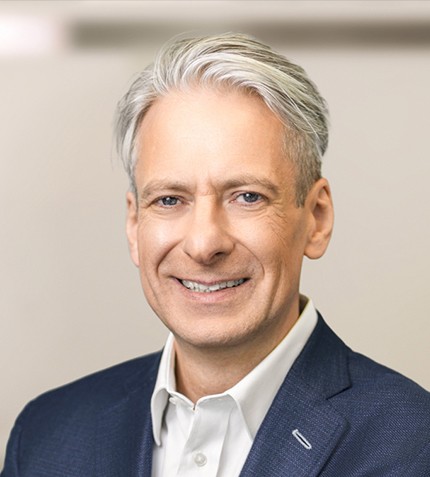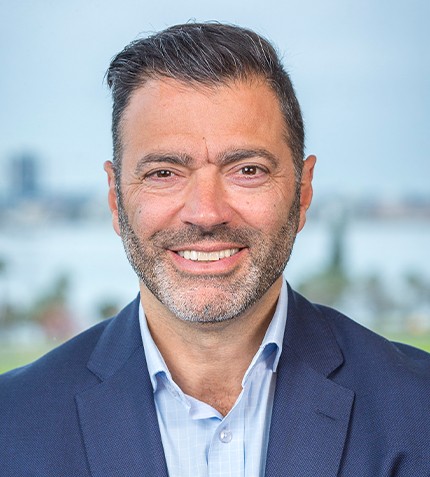
"We are not competitors in the logistics space, but rather enablers for logistics in Africa."
Capt. Pappu Sastry
CEO, ADHIRA SHIPPING AND LOGISTICS (ASL)
Could you briefly introduce ASL to our international audience?
Adhira is a new company, established in 2022 and previously known as Arise Shipping and Logistics. We work as a long-term logistics contractor manager specifically for mining juniors in Africa, doing everything from mine to buyer in different commodities – bauxite in Guinea, iron ore and bauxite in Sierra Leone, iron ore in Sierra Leone, lithium in Madagascar, South Africa and Namibia, as well as copper in South Africa, with other projects in the pipeline. Our HQ office is in Dubai and we have a back office in Chennai, India, as well as people on the ground in each country and for each project we are involved with.
Could you elaborate on how ASL differentiates itself and the services you provide to African junior miners?
Our major differentiation is that we do not compete on price, acting as a logistics manager for miners rather than a logistics provider; that makes us become part of the mining companies, particularly juniors without the structure in place or the expertise to look after logistics. Mining companies underestimate the cost, complexities and the importance of logistics. So we start from a very early stage with the small juniors, becoming part of their FS studies and executing on their FS studies. Our clients essentially outsource their entire logistics department to us as a main contractor, and then we tender for multiple subcontractors meaning we are never in competition with anyone else. As part of our revenue model, we charge a small retainer and when the company starts moving cargo, we charge a percentage of the freight rate. Our project staff is indirectly paid by the mining client through us, and we will employ staff as per the needs of a project, which means that the mining company does not have to worry about human resources. ASL takes on the responsibility and the accountability of logistics in the long term.
Could you share a case study that illustrates the benefits of taking a long-term partnership approach?
We signed a 10-year contract with CSE-listed Cape Lithium, with assets in South Africa and, more recently, Namibia, following a recent merger. They had ordered the processing equipment to start beneficiating the lithium ore, but due to delays in permit approvals, they shifted to crushing at the site instead. ASL adapted with the client, changing plans from focusing on importing the processing equipment and preparing for transporting the cargo to a warehouse in Cape Town, to bringing loading trucks into Saldanha Bay. We have the flexibility to respond quickly to scenario changes and fluctuations in production volumes. As logistics managers who do not compete on pricing, it does not matter how many tonnes we transport a month but that our client is well-positioned as a business to grow in the future because we also grow on the back of that. It is the perfect win-win recipe.
What is your growth strategy?
Our growth stems primarily from rolling off the existing client base as they increase production, diversify to more assets, or require more services from us. We usually handle different bits and pieces of the logistics chain for clients - sometimes we do the trucking, the port management and barging, sometimes the shipping and transshipments, and when clients are ready to go into production, they usually have us manage the whole logistics structure. The average contract length is eight years, and we rarely do anything below 12 months; this allows us to look at the long-term sustainability of our business and our client’s business, being a central part of their growth and an automatic first-choice as they expand. Our approach is that instead of having too many clients to please with small, short-duration logistics requirements, we would rather have a handful of clients whom we support their entire logistics chain and grow with them on other projects they may take on in the future.
What are your business projections ahead of listing on the AIM?
We achieved approximately US$9 million in revenue in 2024, and if we do not attain any more clients or take on additional contracts, we will have a revenue of approximately US$25 million in 2025. Based on our existing contracts, even if we do not sign a single contract for the next 10 years, the company’s valuation is US$39 million, which is good enough for listing on the London Stock Exchange, but due to the vigorous reporting requirements of the London Stock Exchange, I decided to list on the AIM. ASL aims to raise US$100 million in five stages of US$20 million each, and we want to spend most of these funds on enabling junior mines to come into production and increase their production, increasing our client base slowly, and giving our client base confidence that we are the best long-term logistics partner. With the AIM listing, we expect to achieve US$500 million in revenue through our core services within the next five years, and that should position us on course to becoming a US$1 billion company within the next 10 years.
Do you have a message for our readers and potential investors who might be interested in the IPO?
If you understand that your only risk is the counterparty's risk and you will only succeed if they do, then you will always work in such a manner to ensure that your counterparty succeeds. ASL’s culture is that we are always working towards the goodwill and the betterment of our clients and counterparts, and our investors are not only investing in our potential, but the potential of our various customers to succeed through us. We are not competitors in the logistics space, but rather enablers for logistics in Africa.










